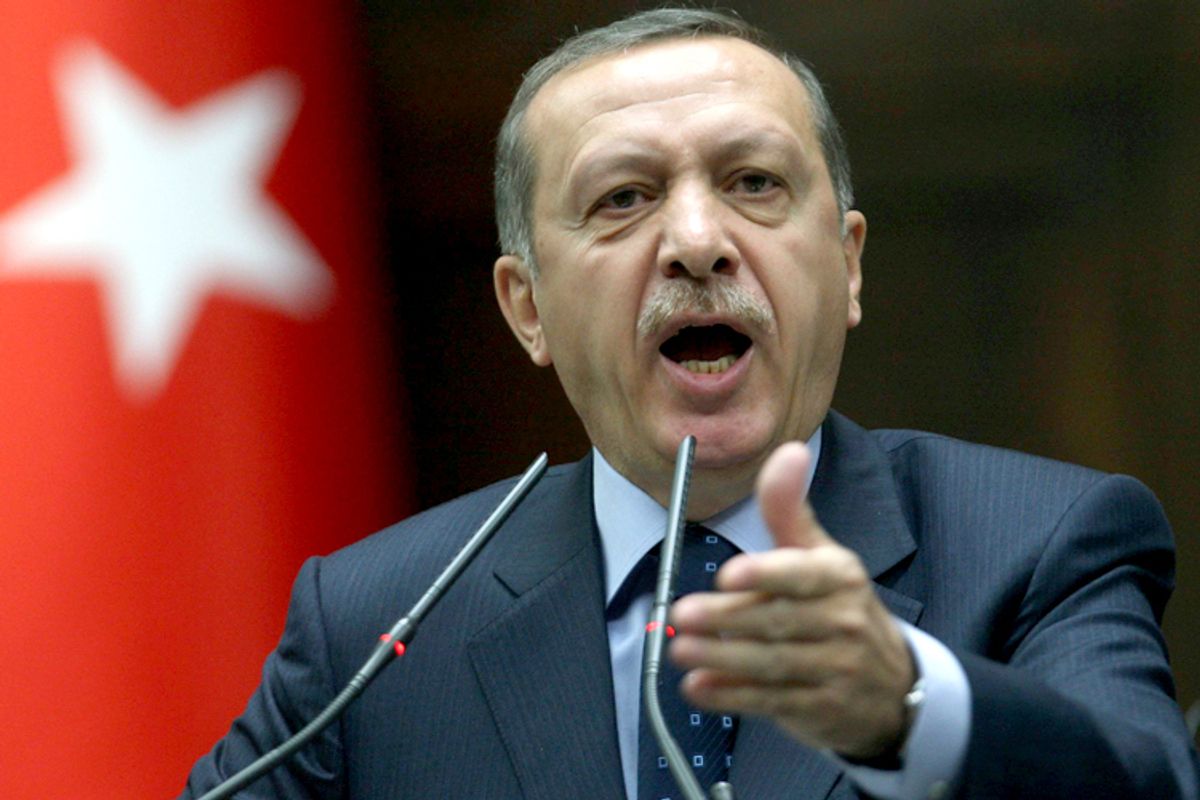 Four days of fierce, widespread and sometimes violent anti-government protests does not a Turkish Spring make, said Prime Minister Recep Tayyip Erdogan on Monday.
Four days of fierce, widespread and sometimes violent anti-government protests does not a Turkish Spring make, said Prime Minister Recep Tayyip Erdogan on Monday.
The protest, before a small peaceful sit-in against the government's plan to build a shopping center on Gezi Park, the last green area in Taksim Square, has quickly become the nation's largest and most intense demonstration in years.
And still, Erdogan, in a televised news conference before his trip to Morocco, dismissed the nationwide protests as a riot planned by extremists and the opposition party.
"Those in Turkey who speak of the Turkish Spring are right; the season is, in fact, spring," he said. "But there are those trying to turn it into a winter."
The streets, relatively calm on Monday, saw tens of thousands protest in multiple cities over the weekend. Some clashed with police who fired tear gas, others set aflame the ruling party's offices, with officials saying they had arrested more than 1,700 people in 67 towns and cities.
"There are those attending these events organized by extremists. This is not about Gezi Park anymore," Erdogan said. "These are organized events with affiliations both within Turkey and abroad," he added, saying the main opposition party had "provoked my innocent citizens."
Here's a map via the BBC that shows where the protests have spread:
Erdogan and his Islamist-rooted AKP have held power for more than a decade, and during his three elected terms Turkey has grown its economy and its regional and international influence. But the prime minister has drawn public criticism for perceptions that he is instituting conservative values and amassing executive power.
Bayram Balci, a visiting scholar at the Carnegie Endowment for International Peace’s Middle East Program, told GlobalPost's Stephen Starr that the protests had gone beyond Taksim Square, voicing a more general frustration people feel toward “the progressive dictatorship of the prime minister.”
“In the last months the prime minister started to adopt very conservative measures including talk of curbing abortion and limiting where people can drink alcohol,” Balci said. “People do not like this intrusion into their private lives and the project of Taksim was a pretext for them to manifest their dissatisfaction.” In addition, according to a 2012 Committee to Protect Journalists report, Turkey ranks as the world's worst jailer of journalists, imprisoning 232 people.
On Sunday night the White House released a statement, urging all parties to "calm the situation," and honor peaceful demonstrations as "part of democratic expression." Meanwhile, Turkey's interior ministry called on its citizens to boycott what it says are "illegal" protests.
"We invite our citizens especially our youth to act with common sense and sensitivity and refrain from taking part in these illegal demonstrations being carried out by certain groups today, the day when the work week begins," the statement said.

Shares